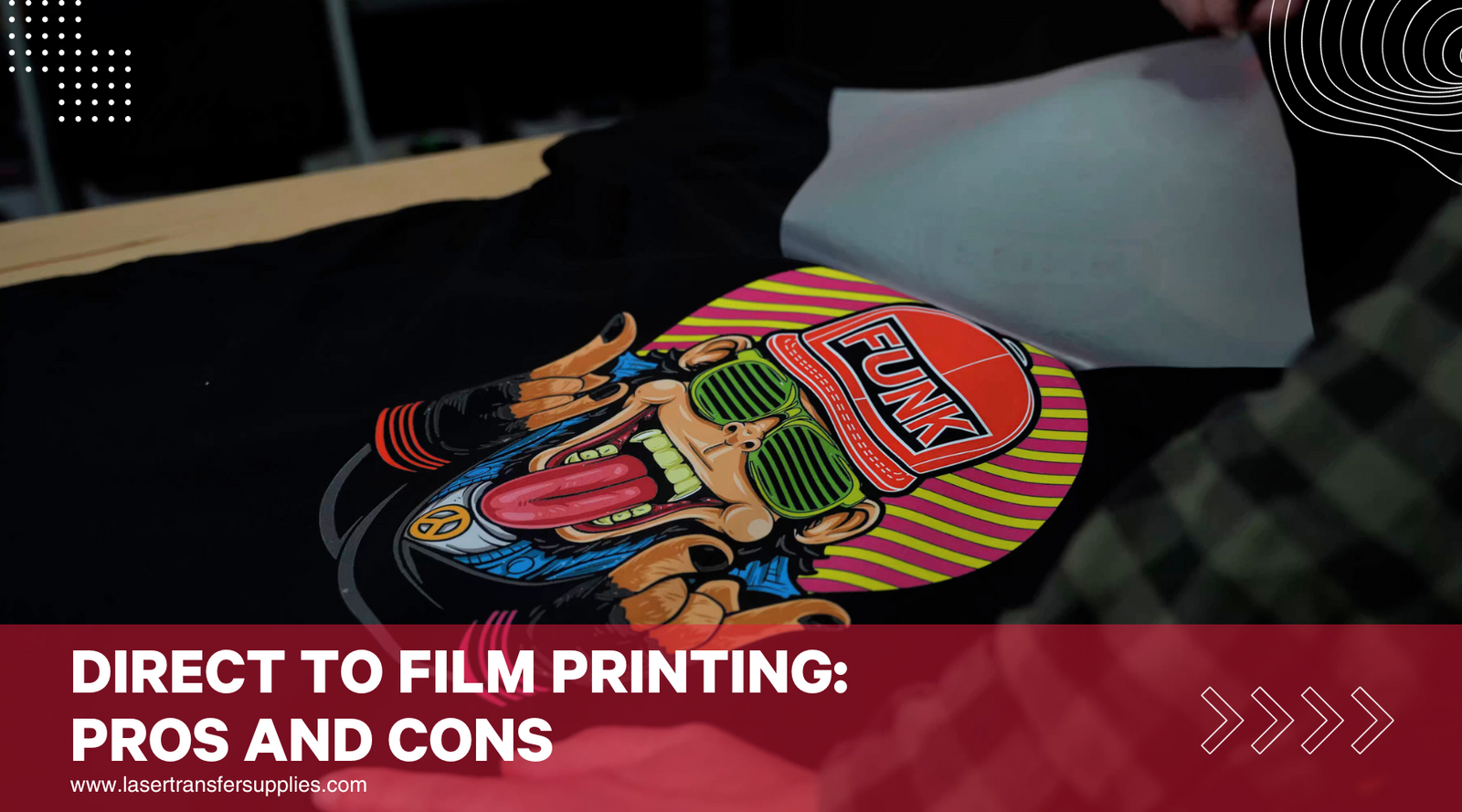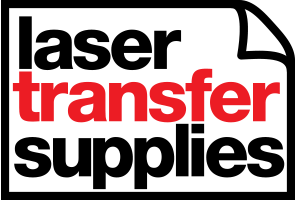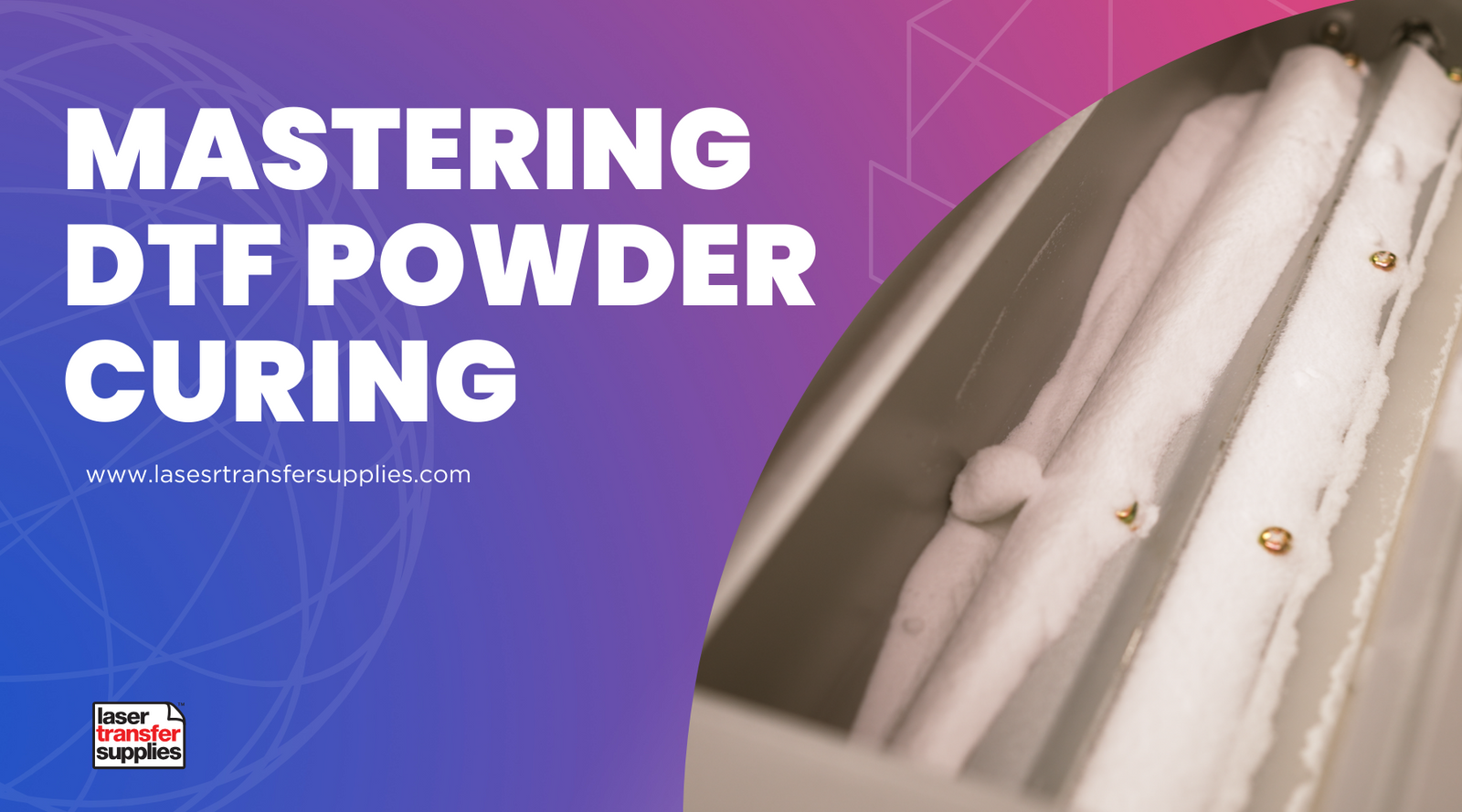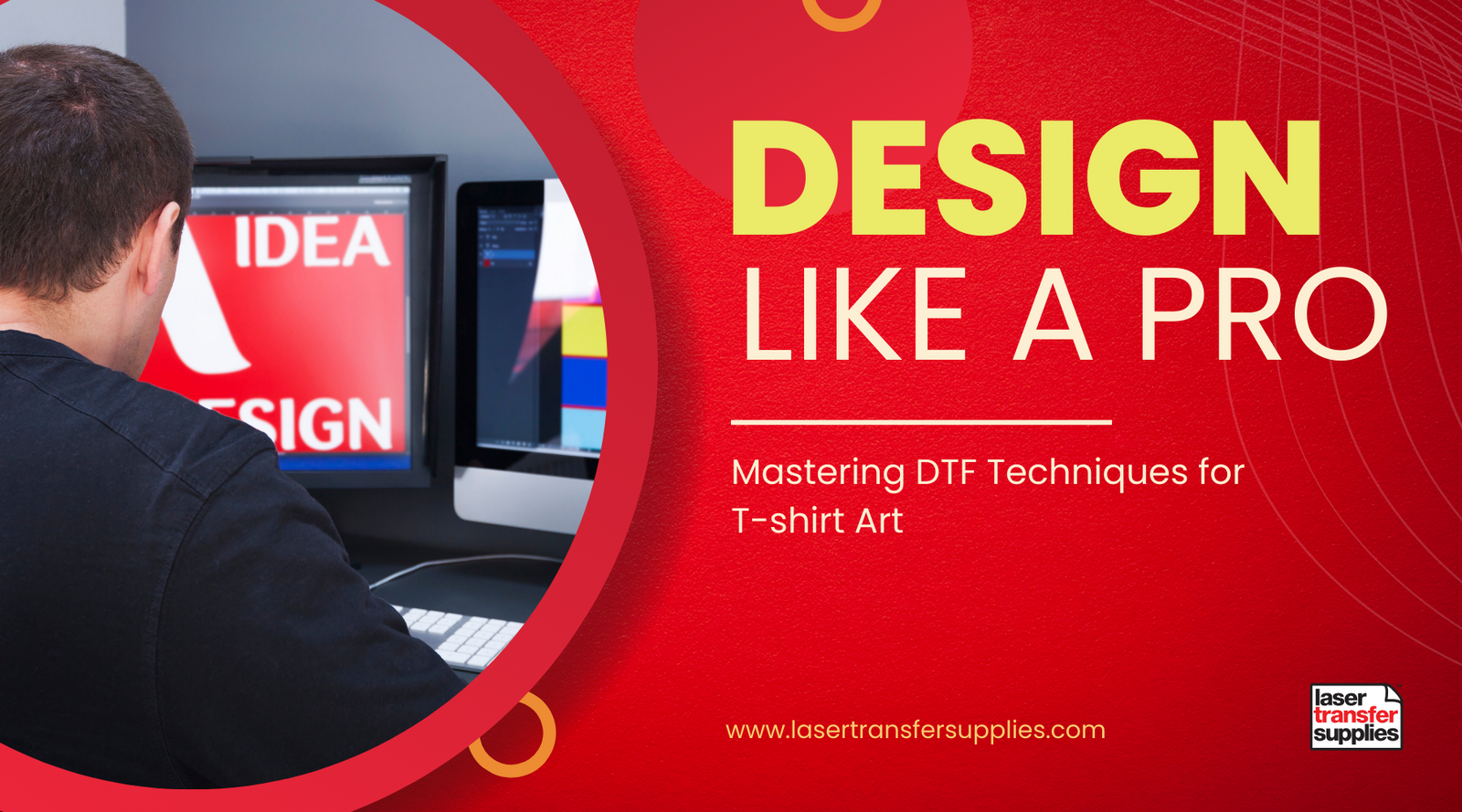
Direct-to-Film (DTF) printing is a way of adding designs to clothes that's becoming really popular these days. It's great for creating colorful, detailed designs on all kinds of materials.
But like everything, DTF printing has its good points and its bad points. We'll explore them all in this article.
PROS OF DTF PRINTING1. Hassle Free Vibrant High Quality Prints
DTF printing produces sharp detail, across a vibrant wide color gamut. DTF printers accept most art formats with drag and drop simplicity; without requiring rasterization, separation, or other complicated preparation steps.
Works on most substrates and colors - this includes 100% cotton black polyester where sublimation struggles. You also have multiple production options. Print a transfer and press a shirt for your own production. Stock up on your most used transfers to flatten out your production between busy and slow days. Become a transfer company and supply smaller printers.
3. Durability
Rubberized inks and stretchy durable adhesives ensure wash fastness and quality over time. It’s common to see DTF prints lasting 30-50 washes, which is considered industry standard. This easily matches Direct to Garment, surpassing vinyl, and only comes in second to screen printing or sublimation on 100% light polyester.
Refine your DTF transfer application process with this in-depth guide.
4. Fast and Simple Graphics Preparation
Minimal hassle or art preparation is required allowing you to just send a job to print without worry that it will break down. Easily handles CMYK and RGB.
5. Low Production Costs
Inexpensive materials and inks allows you to compete with the big guys. Printing your own DTF transfers is far less expensive than Print on Demand or ordering transfers online. For around $0.75-$1.00 per square foot, your material costs are far below the per transfer price of even 200+ piece order from major transfer companies. This means both lower production costs for your own retail and wholesale production, as well as the ability to resell transfers at competitive prices.
6. Easy to Learn
DTF is very simple to learn, print, shake, bake, press. Room to gain mastery over the process. No pre-treating or garment preparation is necessary like in DTG. No A+B marrying like with White Toner printing. While operation is easy, maintenance is the biggest learning curve and can't be overlooked.
7. No Setup Costs
At low quantities DTF printing tends to be much cheaper screen printing, since it avoids all screen setup costs while allowing for an infinite number of colors, and multiple locations can often fit on a single sheet.
8. More Production Options
In terms of garment preparation, it doesn't require fabrics to be pre-treated, and since images are printed to a transfer, final production doesn’t need to happen in a facility. This means that you or your clients can produce transfers, then take a box of blank shirts and a heat press to a live event and print to order – eliminating the need to hold inventory or waste stock by overprinting certain sizes.
top-tier DTF printers
.CONS OF DTF PRINTING
1. Speed
In terms of garment preparation, it doesn't require fabrics to be pre-treated, and since images are printed to a transfer, final production doesn’t need to happen in a facility. This means that you or your clients can produce transfers, then take a box of blank shirts and a heat press to a live event and print to order – eliminating the need to hold inventory or waste stock by overprinting certain sizes.
2. Maintenance
DTF printers often use Epson print heads that were originally designed for dye or pigment based inks – this goes for nearly every brand. When rubberized, viscous, DTF inks are loaded, the print heads must be constantly used, stay wet, and cleaned regularly. Clogged print heads are the biggest expense. Fortunately this can be avoided with daily maintenance and proper planning for weekends or vacations.
3. Fumes & Ventilation Requirements
The evaporated ‘smoke’ from DTF is not just water. The inks release Polymer fumes that require powerful air filtration using either a specialized fume extractor or ventilation to the outside - usually both. This can't be overlooked, and makes printing in an enclosed space a concern.
4. Equipment costs and Production
With the limitation on speed, the upfront equipment cost in terms of prints per hour, along with the cost of replacement parts and down time can be a concern for new and small businesses. The biggest issue for Direct to Film is production speed and order volume early on. The machine must run or be maintained, but entry level DTF printers can only print 3-8 transfers an hour making it easy to overwhelm a single machine. If you tend to get 25+ shirt orders that come with rush deadlines regularly, you’ll quickly need to add a second (potentially larger) machine.

CONCLUSION
DTF printing has its upsides and downsides. On the positive side, it offers vibrant and high-quality prints with minimal preparation. It is versatile, working on various materials and allowing for cost-effective production. The durability of the prints and the low production costs are additional advantages.However, there are drawbacks to consider. DTF printing can be slower than other methods, requires regular maintenance, and necessitates proper ventilation due to fumes. Equipment costs can also be a concern. Businesses should carefully weigh these factors before deciding if DTF printing is the right choice for them.
You can also check our White Toner Printers!



